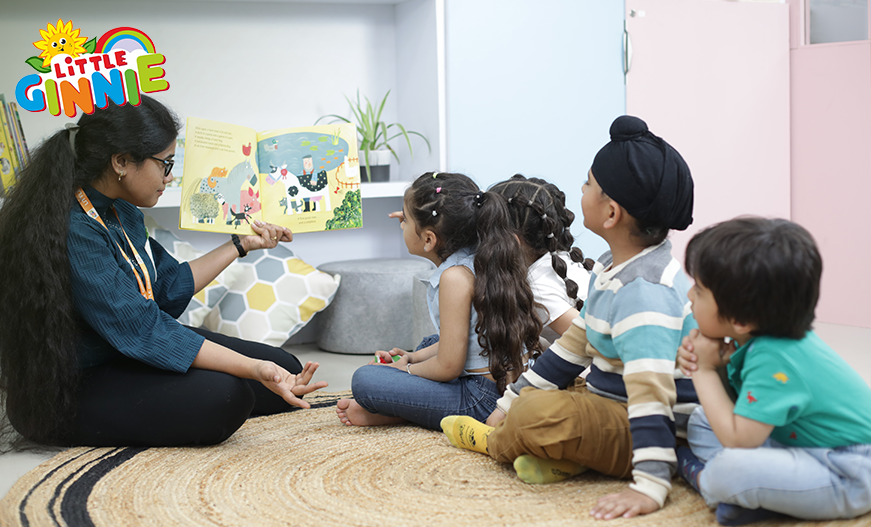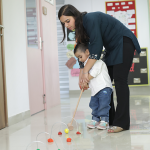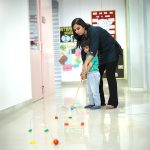
Have you ever paused to consider the magical impact of storytelling on young minds? Imagine the wonder in a child’s eyes as they embark on a journey through tales of adventure and discovery. How does this simple act of storytelling shape the budding language development and creativity of preschoolers?
Join me as we delve into the captivating world of storytelling and its profound influence on the cognitive and language development of our little ones.
Vocabulary Expansion
Listening to stories introduces preschoolers to a variety of words they might not encounter in everyday conversation. This exposure helps expand their vocabulary, making them more comfortable at expressing themselves.
When children hear new words in context, they can better understand their meanings and usage. This enriched vocabulary lays a strong foundation for effective communication skills.
Understanding Sentence Structure
Storytelling helps preschoolers grasp the structure of sentences. By listening to well-constructed narratives, children learn how words are organized to form coherent sentences.
This understanding is crucial for developing their speaking and writing abilities. As they become familiar with different sentence patterns, they can mimic these structures in their own speech and writing, enhancing their overall language proficiency.
Improved Listening Skills
Engaging with stories requires active listening, which is an essential skill for language development. When children focus on a story, they learn to follow the sequence of events, understand the plot, and recall details.
This practice improves their listening comprehension, enabling them to process and interpret spoken language more effectively.
Fostering Imagination
Storytelling stimulates the imagination of preschoolers, encouraging them to visualize characters, settings, and events. This imaginative process is not only enjoyable but also enhances cognitive development.
By picturing the scenes in their minds, children improve their creative thinking and problem-solving skills. Imagination also plays a vital role in helping children understand abstract concepts and develop empathy by putting themselves in the characters’ shoes.
Encouraging Participation
Interactive storytelling, where children are encouraged to participate by asking questions or predicting outcomes, further boosts language development. This interaction promotes critical thinking and helps children articulate their thoughts and ideas.
It also makes the storytelling session more engaging and memorable, reinforcing the language concepts being introduced.
Building Confidence
As preschoolers become more familiar with storytelling, they gain the confidence to narrate their own stories. This practice of storytelling enhances their speaking skills and boosts their self-esteem.
Confident communicators are more likely to participate in group activities and express themselves effectively in various situations.
Enhancing Memory Skills
Remembering the sequence of events in a story improves memory skills. When children recall and retell stories, they practice organizing information logically.
This skill is transferable to other areas of learning, helping them remember and recount experiences more accurately.
Promoting a Love for Reading
Storytelling fosters a love for books and reading. When children enjoy listening to stories, they are more likely to develop an interest in reading independently.
This early love for reading contributes to lifelong learning.
The Impact on Cognitive Development
Beyond language skills, storytelling has a profound impact on cognitive development. As children listen to stories, they engage in mental processes such as sequencing, predicting, and making connections.
These cognitive skills are fundamental for problem-solving and critical thinking. Storytelling also introduces children to different perspectives and cultures, broadening their understanding of the world.
Strengthening Social Skills
Storytelling sessions often involve group interactions, which help preschoolers develop social skills. They learn to wait for their turn, pay attention to others, and reply correctly. These social interactions are crucial for building relationships and understanding social cues.
Through storytelling, children also learn about empathy, kindness, and cooperation, which are essential for social development.
Creating a Bond Between Storyteller and Listener
The act of storytelling creates a special bond between the storyteller and the listener. Whether it’s a parent, teacher, or caregiver, the shared experience of storytelling strengthens the emotional connection.
This bond provides children with a sense of security and trust, making them more receptive to learning and communication.
Incorporating Storytelling into Daily Routine
Incorporating storytelling into the daily routine of preschoolers is a fun and effective way to boost language skills and stimulate imagination. Parents and educators can make storytelling a part of bedtime routines, classroom activities, or family gatherings.
By doing so, they provide consistent opportunities for children to engage with stories and reap the benefits of this enriching activity.
Tips for Effective Storytelling
- Choose age-appropriate stories
- Use expressive voice and gestures
- Encourage participation
- Repeat favorite stories
- Incorporate props and visuals
Select stories that are suitable for the child’s age and interests. This ensures that the child can
understand and enjoy the story.
An animated storytelling style captures the child’s attention and makes the story more engaging.
Ask questions, invite predictions, and encourage children to join in the storytelling. This
interaction makes the experience more interactive and memorable.
Repetition helps reinforce language concepts and makes children more familiar with the story’s
vocabulary and structure.
Use props, pictures, or puppets to make the story come alive and enhance the child’s imaginative
experience.
The Lasting Benefits of Storytelling
The benefits of storytelling extend beyond language development, fostering creativity, confidence, and a love for reading that will support children throughout their educational journey. By engaging in storytelling, parents and educators can provide preschoolers with a strong foundation for future learning and communication success.
Storytelling is more than just a fun activity; it is a vital part of early childhood education that nurtures the whole child, preparing them for a bright and successful future.
Storytelling is a timeless and invaluable tool for fostering language development in preschoolers. It enriches their vocabulary, enhances their understanding of sentence structure, and improves their listening skills.
Beyond language and vocabulary, storytelling ignites the imagination, strengthens social and cognitive skills, and builds confidence. By incorporating storytelling into daily routines, parents and educators create a nurturing environment that promotes a love for reading and lifelong learning.
Through the magic of stories, children not only learn to communicate effectively but also develop empathy, creativity, and critical thinking. As they venture on their journey, the foundational skills gained through storytelling will support and inspire them every step of the way.












